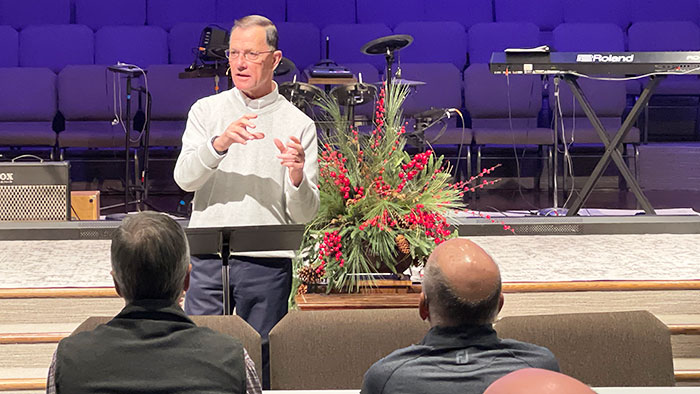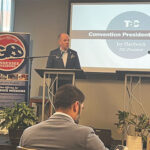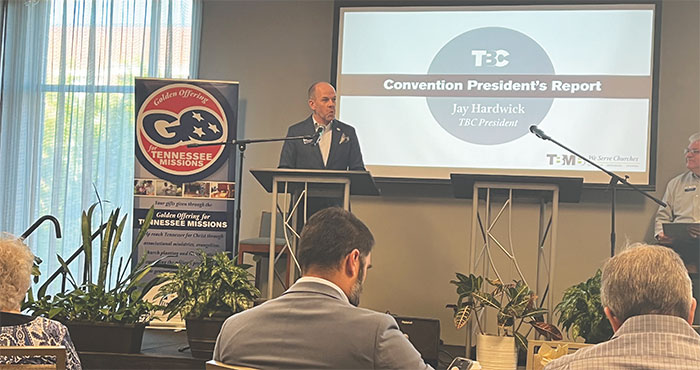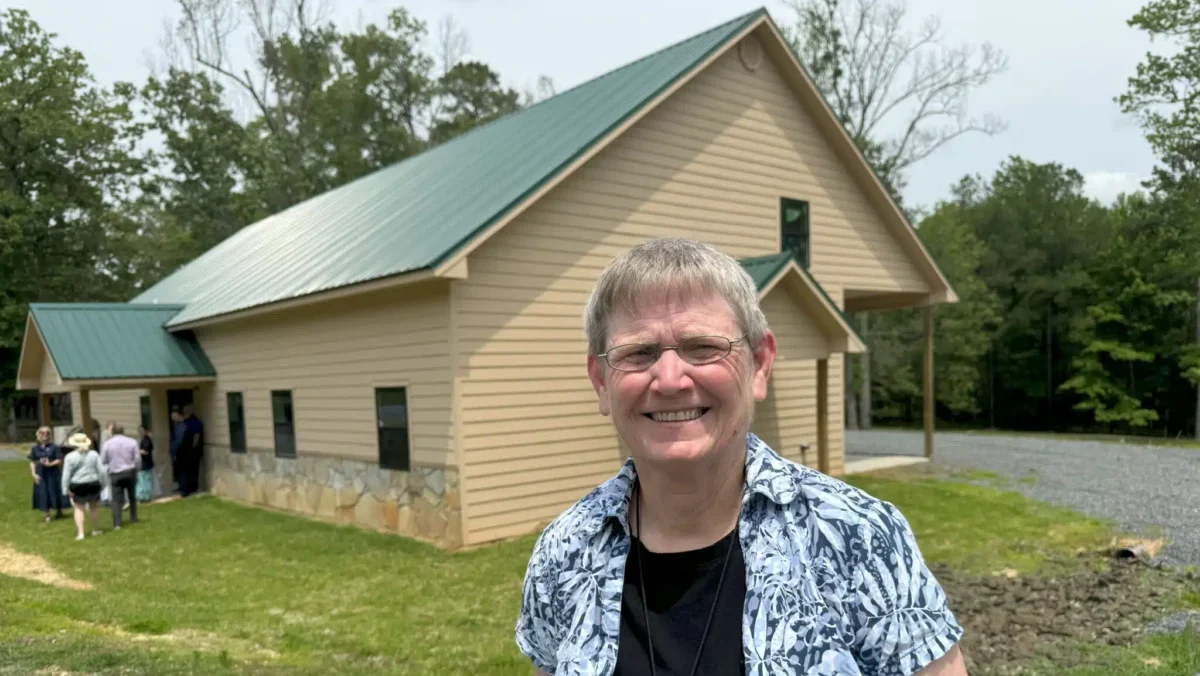Pastors are not “supermen,” and they still struggle with anxiety, depression and other mental health challenges that often lead to ministerial burnout and occasionally suicide.
“I found out this job’s hard for everybody,” Cliff Marion told a room full of pastors and other church ministers gathered for the first-ever Pastors Mental Health Forum. “I know that’s the way the people in this room are feeling and that ultimately takes its toll. That’s why we want to address it. We each need friends. We need each other.”
Marion, pastor of First Baptist Church Covington, initiated the forum in collaboration with Big Hatchie Baptist Association and the Tennessee Baptist Mission Board. About 50 pastors and other church ministers gathered at FBC Feb. 12.
RELATED: Check out more stories on mental health here.
The forum was held to address a growing trend of pastoral burnout and ministry dropout stemming from mental health challenges. The Tennessee Baptist Convention’s Acts 2:17 Initiative identified mental health as a primary area of ministry concern and workgroups are currently meeting to flesh out strategy to address the issue among pastors, ministers, church members and beyond. Videos of the forum can be viewed here and here.
The stress of managing the COVID-19 pandemic is cited as a catalyst in the growing mental health crisis in America. Many pastors reference it as a significant source of stress. A 2023 Barna Research Group study found that only 52% of pastors are “very satisfied with their jobs,” while just one-half (50%) are as confident in their calling as when they first began. Two of five pastors (42%) have considered leaving the ministry.
The top reasons listed by those who have considered leaving the ministry are “I feel lonely and isolated” (43%, or 18% of all pastors surveyed) and “the immense stress of the job” (56%, or one-fourth of all pastors).
Other significant sources of dissatisfaction include: “I am unhappy with the effect this role has had on my family” (29%) and “I am not optimistic about the future of the church” (29%).
Isolation and lack of ‘safe people’
“Guys, I wonder how many of us here on this Monday morning, on the outside, everything looks really good but, on the inside, your world is coming apart and there’s a crash somewhere if you don’t seek out help,” said Ronny Raines, senior pastor First Baptist Church Clarksville, and the forum’s guest speaker. “That’s why addressing (mental health) is so, so important.”
Raines said that a primary issue that exacerbates the problem is the isolation pastors feel and the lack of “safe people” with whom they can talk. Pastors feel pressure to manage their calling, pastoral duties and family responsibilities at a level where expectations are too high. The mental, physical and spiritual pressure mounts and ultimately produces negative outcomes.
“There are many pastors out there who would say, ‘I don’t really have any safe people in my life,’” Raines told the group. “There’s nobody who would be there at two in the afternoon or two in the morning. Loneliness is a major issue for those of us in ministry.”
Raines said there were three biblical ways to overcome mental challenges, which were taking care of yourself, resisting the enemies lies and listening for God’s voice.
“You and I need sleep, nutrition, exercise, balance and rest,” Raines said. “We need to be healthy in mind, body and soul. How are you doing? Is your soul in a good place? Who in your life is asking you that question?”
Facing reality, not inflated reality
Resisting the enemy’s lies is a key to combating mental health, Raines said.
“Elijah said ‘they’ were seeking to take his life. That wasn’t true,” Raines said. “That was an inflated reality. Only one person was seeking to kill him. Jezebel. Mental health requires us to face reality, not inflated reality. We inflate reality in several areas and to have healthy pastors and revitalized churches, we must have a clear understanding of reality.”
The third area in which Raines said we must not overlook in combating mental health challenges is in listening for God’s voice. He said that to hear God’s “gentle whisper” you must be close to Him. “How intimate are you living to Jesus?” he asked the group.
Raines communicated that pastors and ministers must understand that if they are dealing with mental health it is important for them to be less concerned about the stigma too often associated with the term and seek help for their own well-being, the well-being of their families and for the people to whom they minister.
For those interested in speaking with someone, the TBMB offers support through its Shepherd Care ministry, which is available to pastors and ministers and their immediate family members. Cooperating counselors are available across the state and can often be accessed within a few days of making initial contact with TBMB. Those interested should call 833-55-PEACE (833-557-3223).
EDITOR’S NOTE — This story was written by Chris Turner and originally published by Baptist and Reflector.








